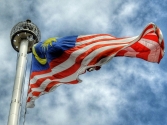Again, airlines within airlines: The case of Singapore Airlines and Tiger Airways
By Johannes BorohIn February 2016 Singapore Airlines announced the acquisition of more than 90 percent ownership of Tiger Airways, a low cost carrier that was established by the company in late 2003 with a 49 percent stake – it was the major stakeholder.
Tiger Airways has since become a full subsidiary of Singapore Airlines, just like its two other long established sister companies, SilkAir, Singapore Airlines Cargo, and the recently founded long haul low cost carrier Scoot Airlines.
One of the main reasons for establishing low cost carriers is to tap into a new air travel market segment in Singapore while maintaining Singapore Airlines' (and SilkAir's) position as a premium airline.
There are numerous studies on full service carriers and their low cost subsidiaries easily available to the public. The US full service carriers started this business strategy of establishing their own low cost carriers as an attempt to compete predominantly with the phenomenal Southwest Airlines. This experiment, however, proved unsuccessful.
United Airlines first started adopting this strategy by establishing United Shuttle in 1994. They gave up and shut down United Shuttle in 2001. It was then followed by Delta who established Delta Express in 1996, which ceased operations in 2003. It was then replaced by Song before finally ceasing operations in 2006. United Airlines tried a second time by founding Ted in 2004, however once again it failed and ceased trading in 2009.
In 1998 US Airways also established its own low cost offshoot, MetroJet, which was shut down in 2001. In Canada, Air Canada Tango only lasted for three years, and ceased trading in 2004.
In Europe several full service airlines shared similar lessons. In 1998 British Airways established its own budget carrier, Go, which was later acquired by easyJet in 2005. Also in the UK, KLM set up its low cost carrier, Buzz, in 1999 before it was bought by Ryanair in 2004.
Scandinavian Airlines System had its low cost subsidiary, Snowflake, flying from 2003 to 2004. Virgin Express in Belgium lasted for about 10 years before it merged with SN Brussels Airlines in 2006.
However, there are encouraging stories of full service carriers with low cost subsidiaries. In Australia, Qantas' low cost carrier, Jetstar, has reportedly been making profits in its domestic sectors since its inception in 2004.
In Germany, Lufthansa’s Germanwings recorded profits again in 2015 after making losses from 2010 to 2014, while in Singapore, Tiger Airways has reported mixed results. In the last four years, it reported losses in 2012, 2014, and 2015.
Scholars have been studying the phenomenon of full service carriers establishing their own low cost subsidiaries. They have identified various reasons for setting up low cost offshoots, such as competing with low cost airlines, catering for untapped markets, product differentiation, and so forth.
Lessons were learnt from the US as these low cost subsidiaries operated with limitations, so that they faced difficulties in significantly lowering their operating costs to match Southwest's. The initial success of British Airways' Go highlighted different issues, as the parent company felt the erosion of its own passenger numbers.
Reportedly, the cannibalisation led to the decision to let easyJet acquire Go in 2001. In the case of Jetstar, its success is somehow also supported by creating new markets. It attracts people who used to take ground transportation, such as the bus or train between Sydney and Melbourne.
Singapore Airlines' decision to bring Tiger Airways closer to its parent company has raised some issues. First, in terms of operating costs, Tiger Airways has to compete with other low cost carriers in the region, such as Air Asia, which reportedly has one of the lowest operating costs in the world, not to mention Lion Air. Should this be one of its main issues, then it might just repeat the mistake of US airlines and their low cost subsidiaries where lowering costs was hindered by limitations.
Second, in terms of integrating Tiger Airways with Singapore Airlines' business model, such as luring its passengers with Singapore Airlines' mileages accruals, Song showed that such efforts couldn't really attract passengers travelling with them – Song allowed passengers to accrue Delta frequent flier points when travelling with them.
Third, even though Tiger Airways (or even Scoot) could record a success, it might erode its full service sister company and its parent, SilkAir and Singapore Airlines, respectively, exactly as happened with Go (reports also suggested business travelers in the region started looking at lower air fares to travel on short haul routes).
Last but not least, the success of Jetstar in its domestic operations in Australia is supported by the fact that Australia has about four times more people than Singapore and the country offers many opportunities to connect cities within its own territory, among other reasons.
So, it is interesting to observe how Singapore Airlines and Tiger Airways are going to face the future. Are they going to create new insights for others to learn and replicate their successful experiments or will they just reiterate the findings that many researchers have revealed? Only time can really tell.

























 Advertise
Advertise










